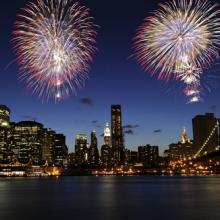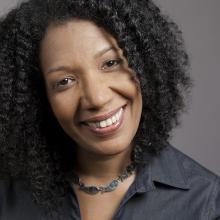revolutionary war
I love the 4th of July! It’s coming around again quickly, and I’m seriously deciding where I’m going to be based on which city has the best fireworks. I know. It’s a little crazy for someone who preaches about peace to yearn for a celebration attached to a war. But there’s something about the 4th that reminds me of the sacrifice that freedom requires in our fallen world.
Growing up our family would pack up the van (or minivan as we got older) and make the pilgrimage to the beach in Cape May, N.J. They knew how to do fireworks. Spectacular! Later, in college, while on summer mission project in New York City, I watched the Macy’s celebration from a rooftop on Roosevelt Island — choreographed fireworks as they played the Star Spangled Banner on the radio! I wept. To this day, I shed a tear when I imagine the moment when the rocket's red glare, the bombs bursting in air, gave proof through the night that our flag was still there. It gets me every time.
But, recently I stopped and thought for a minute: “Why is it that, when I think of the founding of our nation, the faces I see in my mind’s eye are all men (with the exception of Betsy Ross)?”
Today is Religious Freedom Day — a day to celebrate the adoption of Thomas Jefferson’s Virginia Statute for Establishing Religious Freedom. Why celebrate it?
Celebrate because our government does not use our tax dollars to propagate religion, something Jefferson found “sinful and tyrannical.” This does not mean that you have a right to stop any government action that you happen to think violates your religious beliefs — a ridiculous claim repeated during last year’s battle over insurance coverage for contraceptives.
During a roundtable chat with a group of emerging young evangelical leaders recently, someone posed the question: “Has America become a post racial society?”
Well, we haven’t had a race riot in a while — does that mean race isn’t relevant anymore?
A black president just gave the State of the Union Address. How about that? Does that mean America’s OK with the race thing?
Our nation is a more ethnically diverse nation than it’s ever been. Does that count for anything?
Scholars across disciplines agree that what we think of as “race” literally was invented here in the 17th century to delineate castes within a system of extreme privilege and subjugation.
So, rather than thinking about the dreaded word, “racism,” to answer the question, perhaps it would be more helpful to think about how our society has been “racialized” and then ask if such a racialization still exists or reverberates in today's American culture.


